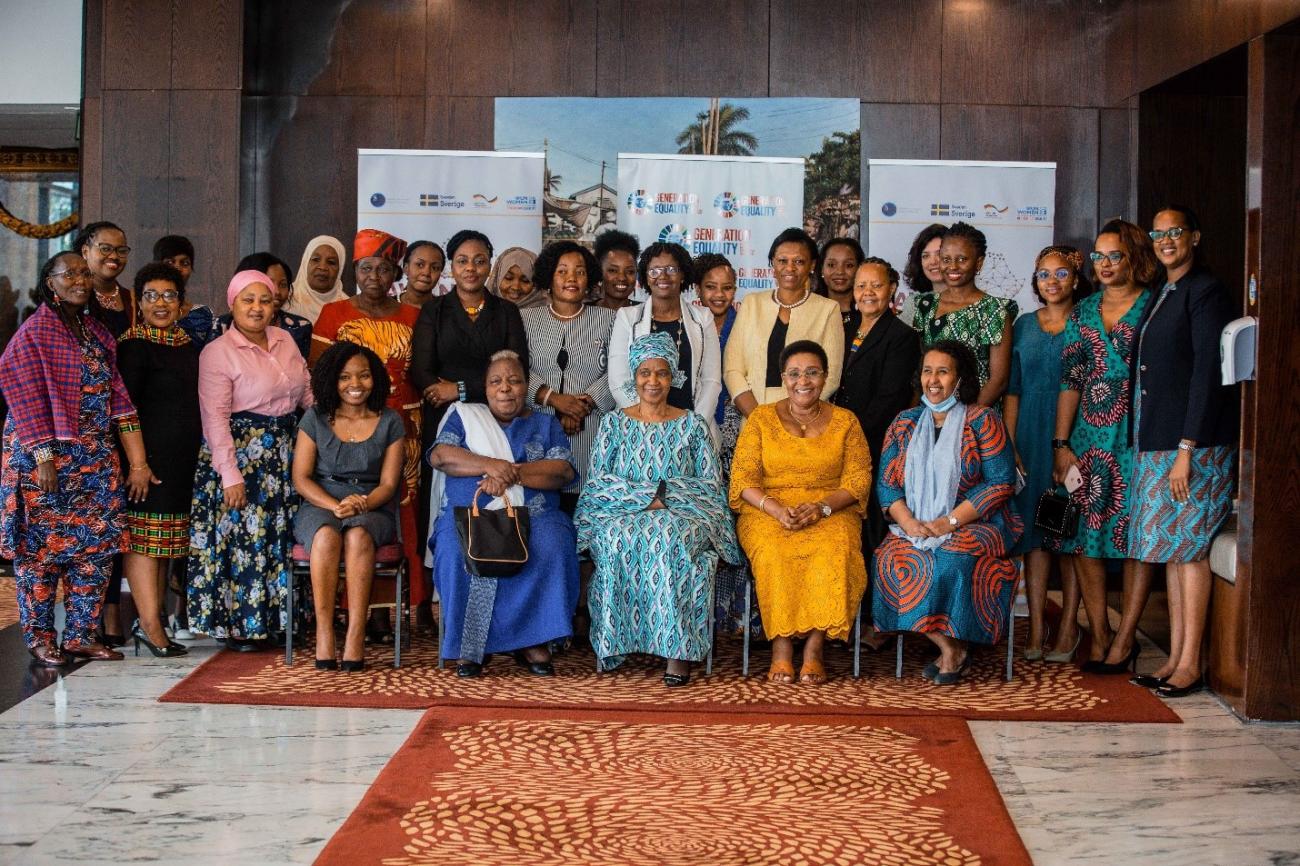On her official visit to Tanzania in May, the UN Women Executive Director Phumzile Mlambo-Ngcuka met with women leaders from the African Women Leaders’ Network Tanzania Chapter (AWLN Tanzania) as a part of her engagements ahead of the Generation Equality Forum in Paris.
At the meeting, held on 28 May with the co-chairs and 25 representatives of AWLN Tanzania, Dr. Mlambo-Ngcuka urged the women leaders to commit to speeding up actions on gender equality by joining the Generation Equality Action Coalitions, participate in the Forum in France and support the acceleration of progress in Tanzania.
She emphasized the need to intensify efforts, highlighting that while significant milestones have been made since the adoption of the Beijing Platform for Action, there was still more work to be done for gender equality to be realized.
“We were able to fight for girls’ education, although girls dropping out of school is still a challenge. We increased women’s leadership, but have not yet achieved 50-50 representation in decision-making,” she said. “It is clear that that we absolutely need to do more to change the lives of women and girls in and beyond Tanzania.”
Dr. Mlambo-Ngcuka commended the network for successfully bringing women leaders, including young women leaders, together. She added that youth are essential in achieving the transformative change that is needed, “UN Women’s Generation Equality campaign calls for the inclusion of all, engaging everyone,” she said.
In her remarks, Ms. Mary Rusimbi, the AWLN Co-chair and Executive Director of the local civil society organization, Women Fund Tanzania Trust, reaffirmed AWLN Tanzania’s commitment to moving the gender equality agenda forward, including through platforms such as the Generation Equality Forum.
“As a network, this begins with aligning the work of the network with existing initiatives and complementing ongoing efforts from the government and other stakeholders,” said Ms. Rusimbi.
Since 2019, UN Women has supported the establishment and operation of AWLN Tanzania, which was officially launched in February 2020. Led by two Co-chairs, who represent different generations of women, to reflect intergenerational leadership, the national chapter brings together over 200 women leaders from diverse backgrounds, working together to amplify women’s voices, strengthen women’s leadership, and safeguard the rights of women and girls across the country.
In her presentation on strengthening intergenerational linkages in the women’s movement, AWLN member Ms. Nuria Mshare said, although networks such as AWLN provide the necessary space for knowledge exchange and mentoring, young people are still struggling to find ways to ensure they are meaningfully included in key decision-making.
“In order to build a strong foundation, we need to improve collaboration and ensure more data is available to inform innovative thinking and sustainable solutions,” she said.
The discussions further emphasized the need for heightened efforts to increase women’s representation in leadership and decision-making, and increase financing for gender equality as essential ingredients for a stronger women’s movement. The meeting concluded with commitments from each participant to use their individual and collective capacities to realize better outcomes for Tanzanian women and girls.




